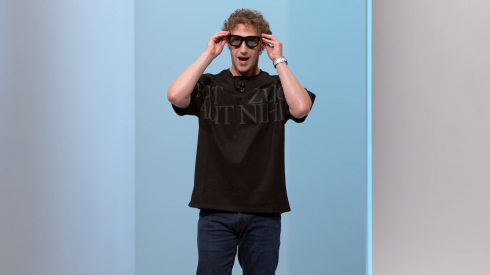-
A webinar hosted by OpenAI this week spotlighted how school districts in Illinois, Texas and Arizona implemented and trained staff to use ChatGPT for instruction, operations and governance.
-
At a State of Education forum hosted by the Decatur-Morgan County Chamber of Commerce, school and college officials agreed that artificial intelligence has already become an essential tool for both teachers and students.
-
OpenAI, the parent company of ChatGPT, says it will roll out parental controls in October. When that happens, school officials such as family coordinators may be needed to help parents understand and use them.
More Stories
-
Purpose-built AI learning platforms that don’t give students the answer, as opposed to tools that allow for direct answer generation like ChatGPT, are the way to avoid making students utterly dependent upon AI.
-
In glossy AI advertisements bought by the billions of dollars tech companies are making off schools, the classroom is portrayed as a student-centered, personalized learning space. But is that truly what AI is creating?
-
A technology-focused charter school in Oklahoma City uses a state-of-the-art school garden to teach students about planning, data collection, species identification, hydroponic plant beds and gardening-related apps.
-
To find their way in a changing job market in which employers are replacing interns with AI, college grads must adapt faster than the technology trying to displace them, while jumping into more advanced work.
-
Acceptable uses of AI should not promote anti-intellectualism, which Richard Hofstadter described as "resentment of the life of the mind ... and a disposition to constantly minimize the value of that life."
-
A technology conference hosted by Thompson School District in Colorado offered ideas for tools and lessons that teachers could take back to their classrooms, including how they might use AI to promote critical thinking.
-
A history teacher at Richland High School uses AI for image generation, to search curriculum rundowns to see if he’s missed anything, and for the high school tabletop role-playing game club that he advises.
-
Specifically designed for faculty, MonarchMind gives users access to ChatGPT, Gemini and Llama on a secure, university-run system that does not share chat data with outside parties or use it to train AI models.
-
Cal State’s deputy vice-chancellor of academic and student affairs, its chief information officer, and a San Francisco State University anthropology professor take different stances on a $16.9 million AI initiative.
-
A new AI-powered app aims to improve U.S. math proficiency by giving college students one-on-one math support while cutting educators’ workload by taking on course planning, assignment creation and grading.
-
Plus, OpenAI hits its 1 millionth paying user, a new app analyzes speech energy patterns to predict hypertension, and Americans used over 100 trillion megabytes of wireless data in 2023.
-
One Kentucky city is proving that generative AI projects are within reach for even small municipalities. At a cost of less than $200, Covington has launched a quirky LLM-powered chatbot to boost economic development.
-
As increasingly sophisticated education tools use AI to do cognitive labor, some professors are concerned that new features are making it harder for teachers to encourage students to use AI in helpful ways.
-
Up to 40 percent of global students have to learn in a second language, limiting their educational outcomes. AI translators, chatbots and multilingual text-to-speech tools can help bridge the gap.
-
Tech-savvy San Diego high school teacher Jen Roberts takes a proactive approach to showing her students the ins and outs of AI, which she said can prepare them for the future while improving their writing.
-
While interactions with AI bots can be helpful and even life-affirming for anxious teens and 20-somethings, some experts think tech companies are running an unregulated psychological experiment with millions of subjects.
-
According to recent data from the education research organization foundry10, about a third of college applicants in 2023-24 acknowledge using an AI tool for help in writing admissions essays.
-
Rasmussen is the latest of several institutions to partner with the online resume builder and job-search company Hiration to give students and alumni a tool for real-time feedback on job interview skills.





























